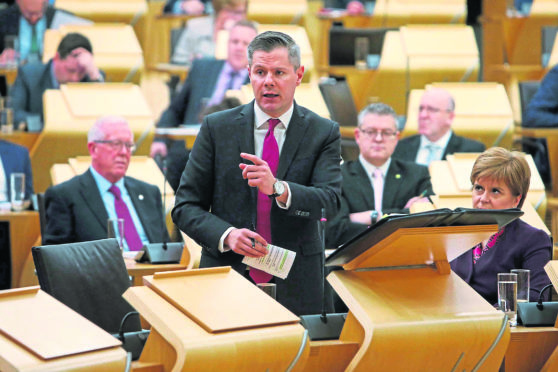North local authorities gave a cautious response to the Scottish Government’s budget settlement.
Highland Council has received an extra £4.2m after facing up to a shortfall of more than £30m in their original settlement.
Budget leader Alister Mackinnon said: “This gives us a little more flexibility, but still leaves us facing a very challenging budget situation.
“We now need to consider how we can best use this money, bearing in mind our reserves are below the recommended amount and we have considerable risk moving forward in future years.”
Mr Mackinnon said the council would consider carefully the new powers to raise the council tax cap above 3%.
He said: “We have had a lot of feedback from the public about income generation, but we are aware of many households already with stretched financial circumstances. We will need to carefully consider now to what extent we use this power.”
Comhairle Nan Eilean Siar has also received more money, and like Highland, says it still faces significant challenges in setting its budgets.
A Comhairle spokesman said: “We anticipate that the additional money will reduce our budget deficit for next year from 5.3m to 4.5m.
“In addition there are decisions that members will have, including around the issue of council tax, which could further reduce that deficit and help protect services.
“However, it is necessary for the Comhairle to proceed with the process of service redesign, efficiencies, increased income and savings to make up the funding gap.”
The Comhairle has also welcomed the move to three-year budgeting, something which Highland Council has also long argued for.
For Shetland Islands Council (SIC), there was disappointment around their hopes for ferry funding.
A SIC spokeswoman said: “The council is concerned that there appears to be no further commitment to fair funding for the isles’ inter-island ferry services and will be seeking further detail on this.”
Highland Council said it will proceed with its planned consultation of the Transient Visitor Levy (TVL) after the Scottish Government said it will consult this year on introducing legislation to enable TVL to be applied locally.
The move is hotly contested by the Federation of Small Businesses (FSB) which says it would damage business and local economies.
FSB Tanya Lister, co-director of the Kylesku Hotel, said: “It is quite clear from Highland Council discussions that councillors are only focussed on how they could spend any money raised by this tax on visitors and that they refuse to believe that it could cause any damage.
“This despite the fact that FSB surveys of Highland businesses from all sectors have twice found that a bed tax would damage both business and local economies, a view that also came out very strongly at a Scottish Government round table held in Inverness recently. If the Scottish Government had taken the views of that meeting seriously, it would be taking a different course of action.”
